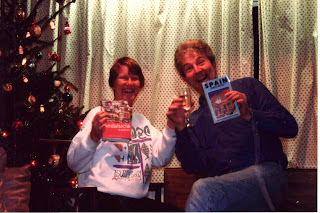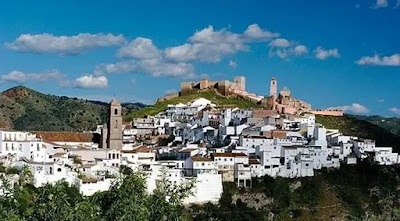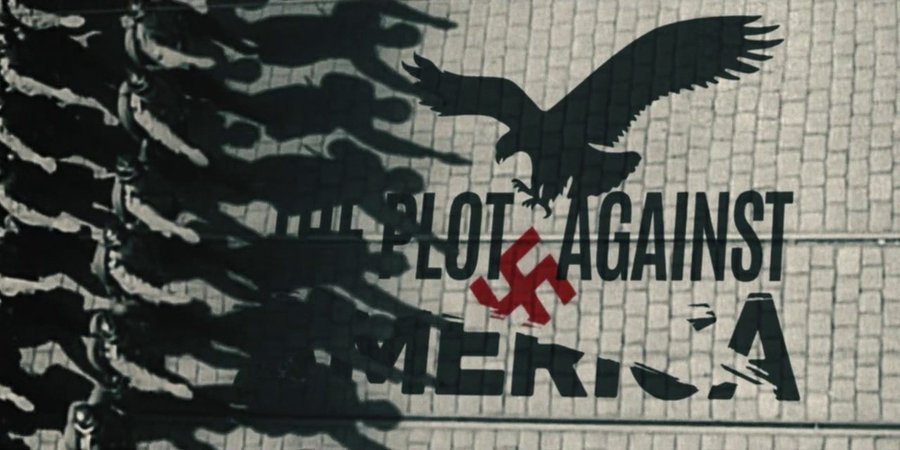Home is where the heart lies. I left mine in Álora.
Be it ever so humble, there's no place like home..
...or so the song goes. Mrs. Sánchez and I have the good fortune to have two places that we can call home - Álora and Birmingham. In Spain we are officially 'extranjeros' (foreigners) or 'non-residents' and, unofficially, 'guiris' (bloody foreigners) which means we are, to all intents and purposes, 'on holiday' even though we've been spending about six months a year in Álora for around 17 years now.
We started coming to Álora 21 years ago. We knew little about Spain, nothing at all about Andalucía and we spoke only a smattering of 'Spanish'. One cold November day we landed in Málaga with our friends, Terry and Moira, to look for a retirement home that we planned buy together. It took us four days to find Álora, a couple of hours to fall for the place, and a couple more days to buy our home in Calle Benito Suarez. I can remember walking down Calle Santa Ana on a crisp November morning in 1999, spotting La Plaza de la Fuente Arriba and thinking, to quote Frankie Vaughan and Terry Colley,
"Man, this is the place!"
Álora from Plaza de la Fuente Arriba before Spain joined the European Union (and before the plaza existed).
The first day we were in Álora, a local agente inmobiliario (estate agent), Antonio Fuentes, introduced us to his tío y tía (uncle and aunt) Antonio Martos and Ana Molina who ran a bar-restaurant, La Taberna de Antonio, on La Rampa and Calle Chozuelos (formally Calle Alemania) They sold Álora to us in less than an hour and we bought our Spanish residence two days later.
Mr.and Mrs.Sánchez. Christmas 1999.
21 years later, just a few weeks ago, we motored up past the castlllo arabe to our reserved parking space on Calle Benito Suarez to be greeted with enthusiastic shouts of, "!Bienvenidos!", (Welcome), "¡Otra vez los Guiris!" (We've missed you) and "¡Jajaja. Brexit!" ("God save the Queen!").
Towards the end of our five week stay it became increasingly obvious that Spain was heading for tighter Covid-19 restrictions. Many towns and regions we would have to pass through on our drive to Bilbao and the Portsmouth ferry were already sealed off except for 'essential' travel. We left on November 9th.- the day the new Covid rules came into force, which extended the national curfew, stopped movement between all towns and villages and closed lots of bars and restaurants.
We set off at dawn so that Monty could have a good run before we headed north to Aranda de Duero, via Madrid. The roads out of Álora were still open, even though the new restrictions had come in at midnight. By the next day the Guardia Civil were blocking the roads in and out of Álora.
We headed for breakfast at El Capricho, on the road to Granada, a city that had been under tight restrictions for months. Every few kilometres overhead signs kept reminding us that there was an estado de alarma (State of Alarm) and to expect controles en carretera (road blocks) and there was very little traffic.
The cafe was open for business, as usual, with all the Covid-19 safety measures being strictly observed, and so we set off again for the Andaluz border confident that things weren´t going to be so bad after all.
It takes about two and a half hours to drive from Álora to the Despeñaperros ('where the dogs are thrown over') Gorge which is the boundary between the Andalucía and Castilla-La Mancha regions.
The Depeñaperros Pass
Before they blasted tunnels through hills of the Sierra Morena and built vertiginous (not bad eh?) viaducts across the gorge, there used to be a narrow, winding road down at the bottom which followed the line of the Rio Despeñaperros. The hairpin bends down there were quite challenging and more often than not we would come across an 'artic' or two waiting to be pulled back onto the road. These accidents caused no end of traffic queues so the EU (remember them?) spent hundreds of millions of euros on a spectacular road which, on a good day, can take 10 minutes off your journey. Worth every centimo, in my opinion.
You may think that 'The gorge where the dogs are thrown over' is something I just made up.... Moi?
The 'dogs' in the title are the Almohad fighters who were given a good biffing in 1212 AD. at the Battle of Navas de Tolosa (or The Battle of Al-Uqab, depending on whose side you were on), just up the road, by a Christian army led by King Alfonso Vlll of Castile.
The Almohads getting a biffing.
In those days most of southern Spain was under Almohad (Muslim) rule and this battle was a big win for Alfonso
which he celebrated by chucking thousands of 'moros' (anyone from north Africa) prisoners and bodies over the cliffs.
They weren't a bad lot, the Almohads, they invented chess and gave their name to la almohada (the pillow). But Spanish people in those days were very cruel and thought that chucking people off cliffs was great fun. These days they just chuck their rubbish, old cars and donkeys off the cliffs.
An Almohad soldier with his flag.
We were expecting to be stopped at the Andalucía border, so Mrs. Sánchez had our passports and ferry ticket at the ready to show that our journey was 'essential'. Sure enough, about 20km. further on, the motorway was blocked by Los Civiles and all drivers were being stopped and interrogated.
They took one look at our loaded roof rack and British number plate and waved us on. Result! The same happened the next day, north of Burgos as we entered the region of Cantabria on the way for breakfast at our favourite hostal/restaurante in Sotopalacios.
Sotopalacios (pop. 550) has two attractions and is well worth the detour. The Hostal/Restaurante Sotopalacios does the best tostada con aceite y tomate (toast with olive oil and tomato) I have ever tasted, and there's a morcilla (black pudding) factory and shop next door.
Hostal/restaurante Sotopalacios.
The Morcilla shop.
Now, I know that one or two vegetarians read this venereal organ of mine from time to time, and many meat-eaters draw the line at, or above, black pudding, but these delicious dark delicacies are the best in their class. We usually stock up with a few kilos and other tasty items at this porcine paradise.
But breakfast first.
The bar/restaurant was shut!! I was stunned. I even banged on the door in case there was some mistake. No sign of life. The small bar across the road showed no sign of life either. Litter, leaves and leaflets had piled up in the doorway and tumble-weed bowled down the deserted main(only) street in an icy, howling breeze.
If anyone has read all of the 172 editions of this blog... well done. You may remember that Mrs. Sánchez and I stayed for a night at Hostal Sotopalacios in 2002 AD. Our room was well equipped - a luxury bathroom with a heart-shaped double bath with far more shower options than any reasonable person might need, a four-poster bed with a mirror above which displayed erotic images when you put on the bedside light...and nowhere to put your clothes. We never found the CCTV cameras but we got a round of applause the next morning when we came down for breakfast. (Morcilla de Burgos, of course)
The 'special' bathroom.
As luck would have it, black pudding is classed as as an essential item and the shop was open. They have a security system there, similar to those in shops in the Jewellery Quarter in Birmingham. You have to ring the bell and they unlock the door. Those black beauties are precious items in these parts. I asked the nice lady who minds the shop for her daughter where we might get some breakfast. She had no idea.
We drove on in silence except for the rumbling of our stomachs, stopping at a couple of gasolineras in case they had a coffee machine and some fresh bread. After a half hour of hunger we spotted a roadside hotel with a few cars parked outside and pulled in.The tables inside were occupied by men in high-vis. jackets scoffing bocadillos and drinking steaming, aromatic coffee. They all looked up as we walked in. The camarera leaned forward on the bar and shook her head slowly.
'We're shut except for essential workers. These men are all road workers. What do you want?'
'Dos tostadas con aceite y dos cafés'.
'OK, but you'll have to take them outside.' Result.
Our plan was to drive to Bilbao via Santander, have a nice lunch in a harbourside fish restaurant, take Monty for a run, do some essential shopping (gin and wine) and then drive on to Bilbao for the ferry. Some chance!
The Spanish comunidades.
The new restrictions depended on which region (comunidad) you were in, and we'd gone through six of them. In Álora the bars and restaurants can still open until 9.30pm.(but you can't leave town. Why would you?). We were in two of the most restricted regions, and it was Mrs.S's birthday the next day! No birthday meal, and we'd been told that the restaurant and all the bars on the boat would be closed too, as they had to follow French rules!
Things looked bleak. The supermarkets were open so we bought enough for a couple of picnic meals in our cabin.
The next morning, a fine day to be at sea in the Bay of Biscay, the birthday girl and I searched for a free wifi signal in case any of our family had remembered the day and were trying to whatsapp birthday messages. The reception area seemed to be 'hot' and Mrs. S's jolly phone notification tune raised our spirits no end.
Just then an announcement came over the ship's 'tannoy' asking us to go to reception. We've travelled on these ferries many times and that announcement usually means a car alarm has gone off. We walked across to the desk, identified ourselves and were given two packets of French biscuits, a rendition of 'Happy Birthday To You' from the receptionist and an invitation to come back an hour later to be taken up to 'the bridge' to meet the captain! What larks!
The Bay of Biscay can strike terror into the hearts of even the hardiest of sailors. It is noted for storms, dangerous currents, big waves and 72 shipwrecks. The old wooden sailing ships often became 'embayed' by westerly gale-force winds (blowing from the left when sailing north), which meant they could not get out of the bay under sail and ended up crashing into the coast of France. Even modern ships give the Bay a 'wide berth' as they head north to go round the 'Brest Peninsula' to enter the English Channel.
The 'Modern Express' in a spot of bother. 26th January 2016
As we were led through the secret door to the ship's 'bridge', we were just rounding the Brest Penisula.
The secret door.Apparently, as the weather was nice and the tide was high, the captain was taking a short cut by going inside the island of Ushant. He has a pilot's licence so he's allowed to do it. He thought it would be a good time to watch from the bridge. Those rocks looked a bit too close for my liking but I said nothing, so as not to spoil Mrs.S's birthday treat, which at this point, she still thought I had arranged.
Mrs. Sánchez: Come on everyone, 'Happy birthday to you.....'
The Captain: Don't push your luck, cherie.
The crew of our boat, the Cap Finisterre, were nearly all Bretons, including the captain. Brittany Ferries was set up in 1973 by a group of French farmers who wanted to take advantage of Britain's membership of 'The Common Market', later to become 'The European Union'. Oops.
Breton 'Onion Johnnies'
We have tickets to travel back to Spain next March when Britain will no longer be a member of the European Union.
Mrs. S. and I think that we very lucky to get to Álora at all this year, the year of the Coronavirus. At least the pandemic could not have been avoided....
We´re out of 'self isolation' now. A vaccine will be available for priority cases from tomorrow. Things are looking up.
Hasta pronto.
Juanito Sánchez December 7th. 2020.



















































